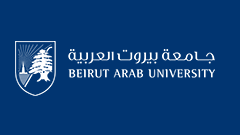العنوان باللغة العربية (Arabic Title)
الغزل العذري: أدب نسوي في العصر الأموي
Author ORCID Identifier
Samir Itani - https://orcid.org/0000-0002-2053-5817
Abstract
Readers of Platonic Love pieces, that were popular in the Umayyad era and spread in Arab society until almost a century after its demise, observe its uniqueness in terms of presenting the personalities of poets in a distinguished way as to men in that time in respect of cultural features. The stories also include extraordinary events that drive them away from the real framework, which critics used to believe, and puts them in an artistic framework that seeks to present a possible reality that is not achieved in actuality. Perhaps this is due to the reasons; one of the most important being the need of the Arab society to receive this kind of narration. This need goes back to the Free Arab woman who belongs to the middle class in society. This class, made up of the majority of the population of Hijaz cities in the Umayyad era and Iraqi cities such as Basra, Kufa and Baghdad at the beginning of the Abbasid era, formed the time of prevalence of this art. As to the delivery of this artistic message, it was done by narrators who have taken for themselves specific places such as bars, or people gathered in the evening near their homes, to present the stories of poets and their poems that were sung or chanted. The narrators have formulated or developed this news, they also added events in poems in order to meet the needs of women for this kind of art at that time, where women's gender identity contributed greatly, and indirectly to the formulation and dissemination of Platonic Love stories, regardless of its existence on a real basis or not. Interest in this art declined only with the change of material and cultural ways of life in the Abbasid society, cross-pollination of Arabs with non-Arabs, and the free exit of women from their social shell through methods invented by themselves; some being under the titles of maliciousness, deception, provocation and others. So other stories began to invade the Abbasid Arab society, such as the stories of One Thousand and One Nights, which replaced love stories in both of its genres. Other tales that are not closely related to women continued to be the news of heroes and their stories, such as the biography of Antara bin Shaddad, Al-Zeer Salem and other news of heroism and wars that served to emphasize masculinity and its authority in society at that time.
Keywords
Platonic Love poetry, Love, Umayyad era literature, literary sociology, Women in Umayyad period.
الملخص (Abstract in Arabic)
يلاحظ قارئ قصص الغزل العذري التي شاعت في العصر الأموي، وانتشرت في المجتمع العربي حتى قرن من الزمن تقريبًا بعد أفوله، فرادتها من حيث تقديمها شخصيّات الشعراء مختلفة عن الرجال في زمانهم من حيث السمات الثقافيّة. كما أنّ القصص بحدّ ذاتها تتضمن أحداثًا استثنائيّة جدًّا لدرجة تُخرجها من إطارها الحقيقي الذي اعتاد النقاد على تصديقه، وتضعها في إطار فنيّ يسعى إلى تقديم واقع ممكن ولكنّه غير متحقّق فعليًّا. ولعلّ ذلك يرجع إلى أسباب أهمّها حاجة المجتمع العربي آنذاك إلى تلقّي هذا النوع من الفنّ القصصي. وترجع الحاجة هذه إلى المرأة العربيّة الحرّة التي تنتمي إلى الطبقة الوسطى في المجتمع، وهذه الطبقة شكّلت في تلك الفترة السواد الأعظم من سكان المدن الحجازيّة في العصر الأموي، والعراقية مثل البصرة والكوفة وبغداد في بداية العصر العباسي زمن شيوع هذا الفن. أمّا إيصال الرسالة الفنيّة هذه فكان من طريق الرواة الذين اتّخذوا لأنفسهم أماكن محدّدة مثل الحانات، أو تجمع الناس مساء قرب منازلهم، يقدّمون قصص الشعراء وقصائدهم التي كانت تُغنّى أو تُنشد. وقد صاغ الرواة هذه الأخبار أو طوّروها، وزادوا في القصائد تلبية لحاجة المرأة إلى هذا النوع من الفن في ذلك الوقت، فكانت هوية المرأة الجندرية تسهم إلى حدّ كبير، وبشكل غير مباشر في صوغ قصص الغزل العذري وانتشارها، بغض النظر عن وجود أساس حقيقي لها أو لا. ولم يتراجع الاهتمام بهذا الفن إلا مع تبدّل طرق الحياة الماديّة والثقافية في المجتمع العباسي، وتلاقح العرب بشكل كبير بغير العرب، وخروج المرأة الحرّة من قوقعتها الاجتماعيّة من خلال طرق ابتكرتها، وبعضها ينضوي تحت عناوين الكيد والخداع والإثارة وغيرها، فبدأت قصص أخرى تغزو المجتمع العربي العباسي من قبيل قصص ألف ليلة وليلة التي حلّت محلّ قصص الغزل بنوعيه. واستمرّت قصص أخرى لا تمتّ إلى المرأة بصلة وثيقة هي أخبار الأبطال وقصصهم مثل سيرة عنترة بن شداد، والزير سالم وغيرها من أخبار البطولات والحروب التي خدمت توكيد الذكورة وسلطتها في المجتمع آنذاك.
الكلمات الدالة (Keywords in Arabic)
الغزل العذري, الحب, الأدب في العصر الأموي, علم الاجتماعي الأدبي, النقد الثقافي.
Recommended Citation
Itani, Samir
(2022)
"PLATONIC LOVE POETRY: FEMINIST LITERATURE IN THE UMAYYAD ERA,"
BAU Journal - Society, Culture and Human Behavior: Vol. 4:
Iss.
1, Article 10.
DOI: https://doi.org/10.54729/IYIN8783

